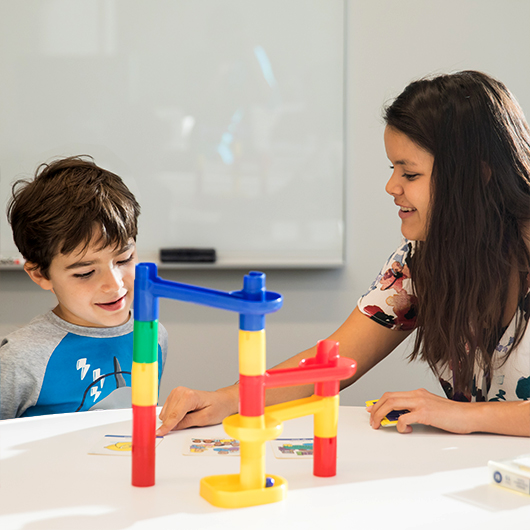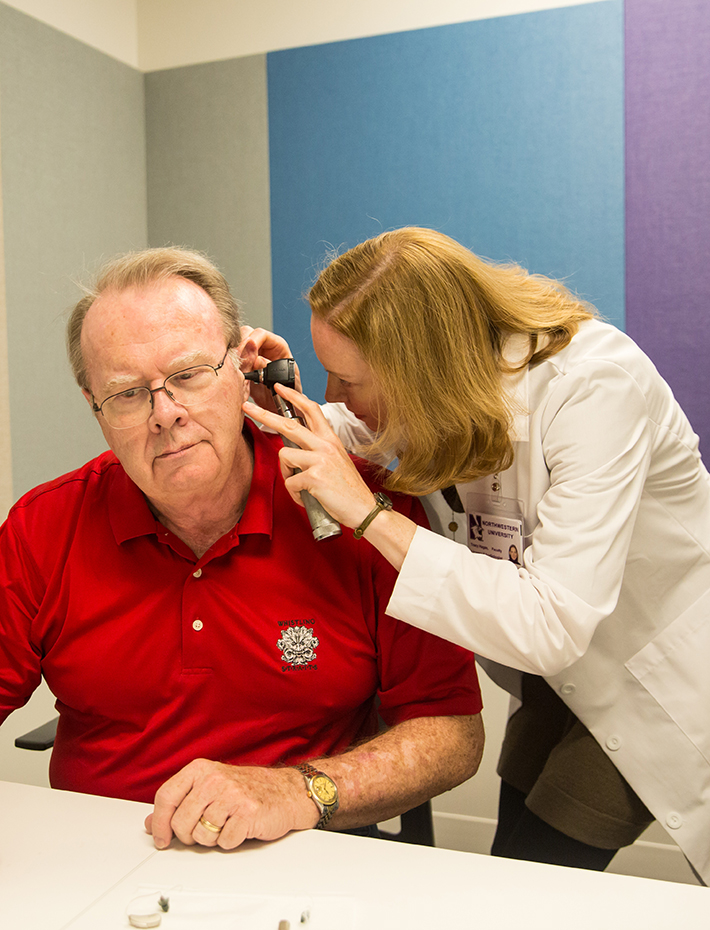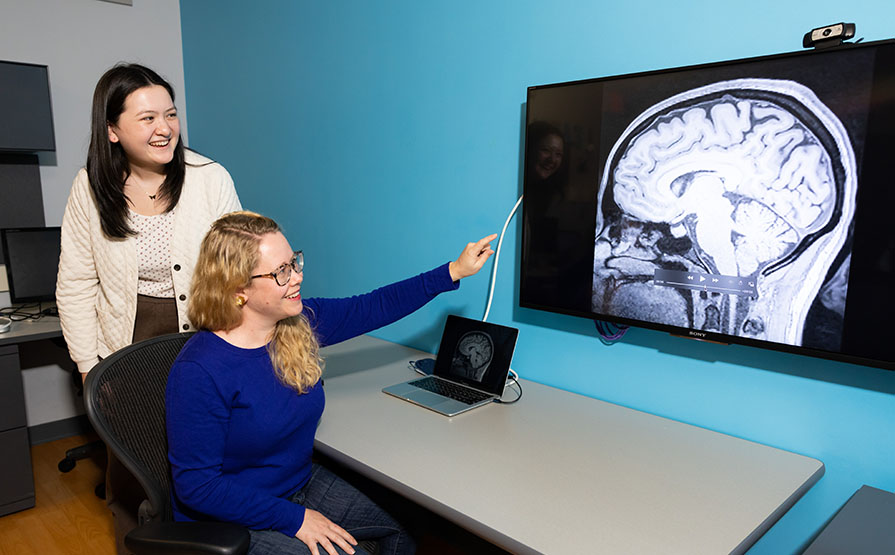The Roxelyn and Richard Pepper Department of Communication Sciences and Disorders is home to undergraduate, professional, and doctoral research programs that explore the science of human hearing, speech, language, learning, and swallowing and seek new and more effective ways to prevent, diagnose, and treat related communication disorders.
The department’s faculty are renowned for discoveries that have changed our understanding of human communication. They explore the processes that underlie hearing, speech, language, learning, and swallowing, including sensation, perception, cognition, and motor control. They investigate social, familial, and cultural issues that impair communication. And they delve into the molecular and epidemiological bases of normal and disordered human communication.
Our professional audiology and speech and language pathology programs are consistently ranked among the top ten programs in the nation by US News & World Report. Students, faculty and staff work together to provide patients of all ages a full range of diagnostic and treatment services for hearing, speech, learning, language, voice, and swallowing disorders in clinics on the Evanston and Chicago campuses.



